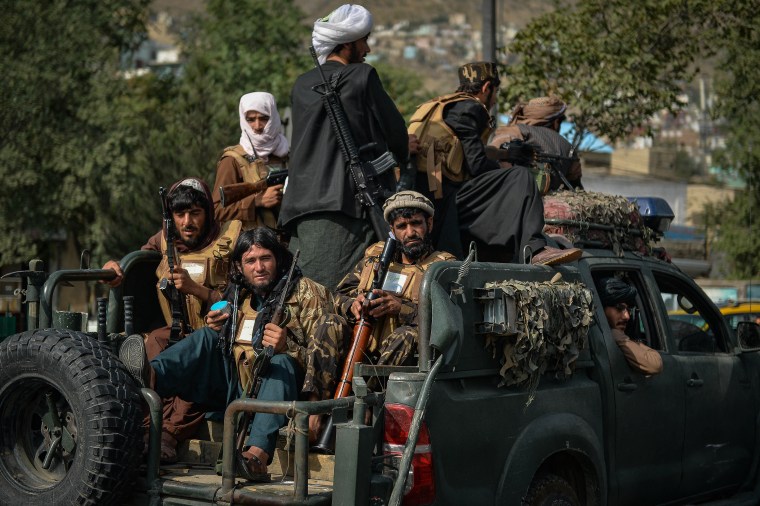Afghanistan Two Years Later: An Analysis by CPJ Asia Program Coordinator Beh Lih Yi and Asia Researcher Waliullah Rahmani

So far in 2023, CPJ has provided crucial assistance to at least 30 journalists from Afghanistan amid continued threats from the Taliban that have forced many into exile. When the Taliban took over Afghanistan in 2021, the regime promised to protect press freedom and women’s rights in order to show the world they had moderated their stance since the last time they ruled Afghanistan in the late 1990s. The Taliban’s promises immediately fell flat and so far this August, authorities have detained six journalists and banned women from broadcasting.
For this issue of Insider, we are sharing an analysis by CPJ Asia Program Coordinator Beh Lih Yi and Asia Researcher Waliullah Rahmani on media freedom in Afghanistan. A longer version can be found here.
What is the state of media freedom in Afghanistan?
Since the fall of Kabul, the Taliban have escalated a crackdown on the media in Afghanistan. CPJ has extensively documented cases of censorship, assaults, arbitrary arrests, home searches, and restrictions on female journalists in a bid to muzzle independent reporting.
Despite their public pledge to allow journalists to work freely, Taliban operatives and officials from the General Directorate of Intelligence (GDI) – the Taliban’s intelligence agency – have assaulted, arbitrarily arrested, and detained journalists, while shutting down local news outlets and banning broadcasts of a number of international media from inside the country. Foreign correspondents face visa restrictions to return to Afghanistan to report.
Journalists continue to be arrested for their job. Since August 2021, at least 64 journalists have been detained in Afghanistan in retaliation for their work, according to CPJ’s research. They include Mortaza Behboudi, a co-founder of the independent news site Guiti News, who has been held since January.
Afghan journalists have fled in huge numbers, mostly to neighboring countries like Pakistan and Iran. Many who left are now stuck in legal limbo without clear prospects of resettlement to a third country, and their visas are running out, prompting fears they could be arrested and deported back to Afghanistan.
What is CPJ hearing from Afghan journalists?
Even two years after the fall of Kabul, we hear from Afghan journalists on a near-daily basis – both from those who remain inside the country and those who are in exile – on the hostile environment they are facing.
Afghanistan remains one of the top countries for CPJ’s exile support and assistance to journalists. Since 2021, Afghan journalists have become among the largest share of exiled journalists getting support each year from CPJ, and contributed to a jump of 227 percent in CPJ’s overall exile support for journalists during a three-year period from 2020-2022. The support they received included immigration support letters and grants for necessities like rent and food.
We also increasingly received reports from exiled Afghan journalists who were being targeted in immigration-related cases. Afghan journalists who have sought refuge in Pakistan told us they have been arrested and extorted for overstaying their visas, and many are living in hiding and in fear.
What does CPJ recommend to end the Taliban’s media crackdown and help Afghan journalists forced into exile?
There are several actions we can take. Top of the list is to continue urging the international community to pressure the Taliban to respect the rights of the Afghan people and allow the country to return to a democratic path, including by allowing a free press.
The global community and international organizations should use political and diplomatic influence – including travel bans and targeted sanctions – to pressure the Taliban to end their media repression and allow journalists to freely report without fear of reprisal.
Foreign governments should streamline visa and broader resettlement processes, and support exiled journalists in continuing their work, while collaborating with appropriate agencies to extend humanitarian and technical assistance to journalists who remain in Afghanistan.
CPJ is also working with other rights groups to advocate for the implementation of recommendations that include those in its 2022 special report on Afghanistan’s media crisis. (Read CPJ’s complete list of 2022 recommendations here and CPJ’s August 14 call on the Taliban to end its media crackdown here.)
CPJ travels to Kansas after a shocking police raid of a newsroom

After authorities seized computers and phones, including personal cell phones, from the Marion County Record, CPJ joined a letter organized by the Reporters Committee for Freedom of the Press to condemn the police raid. CPJ’s U.S. and Canada Program Coordinator Katherine Jacobsen traveled to Kansas to offer support to the paper as it worked to publish its first edition after the raid. Read Jacobsen’s feature on her time in the newsroom here.
The paper’s owner, Eric Meyer, said the police action contributed to the death of his mother and co-owner, 98-year-old Joan Meyer, who collapsed and died following a police search of her home.
With equipment since returned to the newsroom and the search warrant withdrawn, CPJ is demanding a full investigation, especially as the Kansas Reflector reports that the sheriff’s office kept digital files copied from the newsroom’s computers, which the office later agreed to destroy. CPJ will not stop fighting on behalf of journalists like those in Marion County.
Must-read
CPJ spoke with journalists in Ukraine who lived through a Russian missile attack on a popular pizza restaurant in June. The Ria Lounge was a hub for journalists, aid workers, off-duty military, and others looking for a place to eat before the evening curfew. The bombing illustrates the risks journalists face even when they’re off duty. “While my eyes were closed, I heard a dull thud of the impact,” British freelance photojournalist Anastasia Taylor-Lind recounted to CPJ, “and then I heard the sound of everything shattering and flying, the sound of all the glass breaking, everything coming through the air.”
CPJ participated in a fact-finding and advocacy mission to the Netherlands in late June and met with journalists, press freedom advocates, and government officials amid an increasingly hostile media climate in the region, following the killing of crime reporter Peter R. de Vries. “[De Vries’ killing] had a chilling effect on journalists. Experienced crime reporters continue publishing. I do. But I let the police know in advance. That’s new. I wouldn’t do so before,” crime reporter Paul Vugts told CPJ.
CPJ spoke with Peru’s Manuel Calloquispe whose journalism exposes environmental damage from illegal Amazon mining – and makes him a target for his work. Journalists who cover the environment “need courage and willpower to cover this beat,” Ricardo León, an editor who works closely with Calloquispe told CPJ, “What struck me about Manuel is that he is one of the few journalists in the region strongly opposed to the industry.”
CPJ in the news
“Torture, prison, even murder… the threats faced by our free press,” The Evening Standard
“Iran Summons British Envoy Over His Social Media Post Calling For Release Of Detained Journalists,” The Associated Press
“Parliament urged to reconsider anti-press freedom bills,” Dawn
“News: CPJ urges immediate release of journalist Bekalu Alamrew, protection of press freedom in Ethiopia,” Addis Standard
“Kansas paper raid shines light on rising anti-media rhetoric in US,” The Guardian
“Biden administration warns Guatemala against rejecting democracy in presidential election,” The Los Angeles Times
“Advocates Question Whether Reforms Will Offer Bangladesh Media Greater Protection,” VOA
“Taliban detains Iranian photojournalist, bringing media arrest tally to 5 in less than a month,” Arab News
